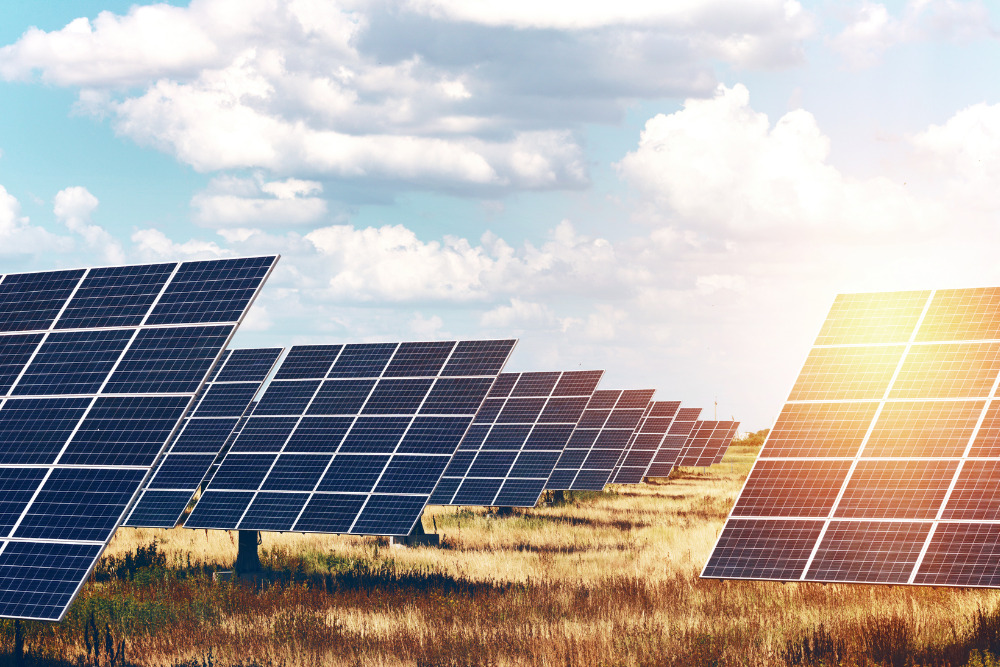Just How Solar Power Can Assist You Conserve Money and Minimize Your Carbon Footprint
The integration of solar energy right into your energy portfolio presents a compelling opportunity for both financial cost savings and ecological stewardship. By using the sunlight's energy, home owners can dramatically lower their month-to-month energy costs while additionally safeguarding against the unpredictability of future power prices. The change to solar adds to a marked reduction in carbon exhausts, straightening individual financing with more comprehensive environmental goals. As numerous government rewards become readily available, the concern develops: how can one effectively browse the initial investments and recurring advantages of solar technology to make the most of both economic and ecological gains?
Understanding Solar Power Financial Savings
While the shift to solar energy usually entails an initial financial investment, recognizing solar power financial savings is important for property owners and companies alike. Solar power systems can substantially lower electrical power costs by utilizing the sun's power, equating into substantial long-lasting economic advantages.
Furthermore, solar energy systems might certify for different monetary incentives, including tax debts and discounts, additionally improving their cost-effectiveness. The availability of internet metering permits individuals to sell excess power back to the grid, producing an extra revenue stream. These aspects add to the overall financial savings linked with solar energy.

In enhancement to route financial savings, solar energy offers the added advantage of increasing residential or commercial property worth. Houses outfitted with photovoltaic panels are often much more appealing to purchasers, as they promise reduced energy costs - Simply Solar Illinois. Understanding these elements is important for anybody considering solar power, as it highlights not simply the possible financial gains, yet additionally the wider environmental and economic benefits of taking on eco-friendly energy services
First Expenses vs. Long-Term Advantages
When assessing solar power, it is very important to consider the first expenses versus the lasting advantages. The in advance investment for photovoltaic panels, installation, and associated tools can be significant, commonly ranging from $15,000 to $30,000, relying on the system dimension and home energy needs. This first expenditure might discourage some homeowners; nevertheless, it is vital to think about the possible financial savings over time.
As soon as set up, solar energy systems can dramatically minimize and even get rid of regular monthly electrical energy costs, bring about significant lasting economic advantages. Researches indicate that home owners can save anywhere from $10,000 to $30,000 over the life-span of their solar system, commonly 25 years. Furthermore, lots of states offer rewards, tax obligation credit ratings, and discounts that can balance out initial costs, making solar much more obtainable.

Lowering Your Carbon Impact
Minimizing your carbon impact is an important consideration in today's ecologically aware society, and taking on solar power is just one of the most efficient strategies to accomplish this objective. Solar power is a tidy, renewable energy that significantly reduces dependence on fossil fuels, which are significant contributors to greenhouse gas exhausts.

In addition, the extensive adoption of solar modern technology motivates the development of eco-friendly jobs and sustains innovations in power storage and effectiveness. The more individuals and companies buy solar power, the better the collective decrease in carbon emissions, cultivating a cleaner atmosphere for future generations.
Federal Government Rewards and Refunds
Taking on solar power not only profits the environment however can also bring about significant monetary cost savings, especially with the accessibility of federal government incentives and discounts. Numerous federal, state, and local programs are created to encourage home owners and services to purchase solar power systems, making the shift more cost effective.
Among one of the most prominent incentives is the Federal Investment Tax Obligation Credit Scores (ITC), which permits solar system owners to deduct a considerable percent of the installment prices from their federal taxes. This reward has actually been essential in lowering the upfront expenses connected with solar power systems. In addition, several states supply their very own tax obligation credit scores, gives, and discounts that can further enhance cost savings.
Moreover, some regional federal governments supply real estate tax exemptions for solar installations, ensuring that homeowners do not face increased home taxes as a result official website of their renewable power financial investments. Utility companies might additionally supply rewards, including net metering and feed-in tolls, which enable solar energy users to offer excess power back to the grid.
Selecting the Right Solar System
Picking the ideal solar system is critical for making best use of energy effectiveness and financial advantages. The choice pivots on several factors, consisting of energy requirements, budget plan, and find out available room. House owners ought to start by examining their electrical power consumption to establish the system size needed for ideal efficiency.
Next, think about the various kinds of solar technologies available. Simply Solar Illinois. Photovoltaic Or Pv (PV) panels are the most usual, transforming sunshine directly right into power, while solar thermal systems concentrate on heating water. Each type has unique benefits depending upon individual needs
Spending plan considerations are likewise extremely important. Preliminary installment costs can differ substantially, so it's essential to compare quotes from numerous companies and discover financing options. Government rewards and discounts can even more minimize the economic problem, making solar systems a lot more obtainable.
Final Thought
In recap, solar energy presents a viable remedy for achieving substantial cost savings while concurrently decreasing carbon emissions. The initial investment, though substantial, yields substantial long-term financial benefits, with potential cost savings ranging from $10,000 to $30,000 over 25 years. In addition, the environmental advantages of solar energy contribute to sustainable practices essential for combating climate change. Government motivations boost the usefulness of solar modern technology fostering, urging a change in the direction of a cleaner, extra financially effective energy source.